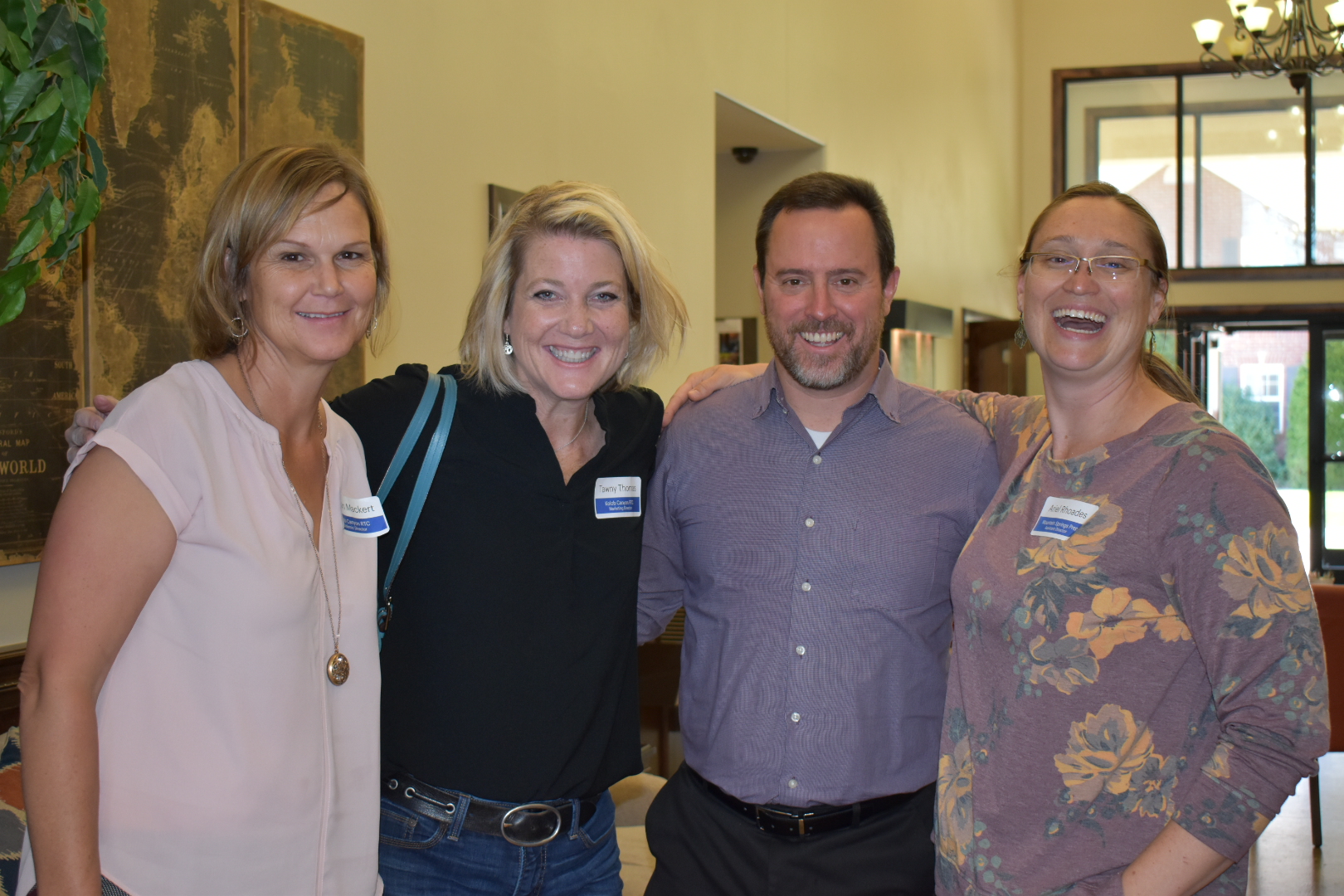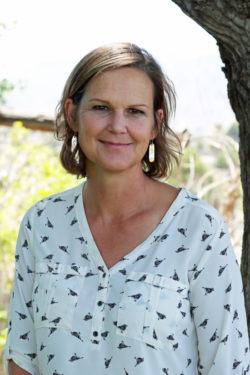
Learning to budget, pay taxes, obtain a loan, find the most competitive credit card rates or recover from identity theft might sound stressful or maybe even boring. The Financial Literacy class at Mountain Springs Preparatory Academy, taught by Becca Black is anything but! Student Ethan shared, “Financial literacy is so important and Becca is such a great teacher!”
Students are currently involved in a realistic budgeting project. Each student has chosen a desired career and a city to “live” in. Based on their chosen profession, each student was paid a salary. Students then created a budget including housing costs, car payments, insurance, utilities, cell phone, medical expenses and so much more. In an attempt to help students understand that life events can dramatically affect your budget, Becca recently assigned each student an unexpected financial situation such as a natural disaster, medical emergency or car accident. Students have since made adjustments in their budget to account for this surprise development. What a great way to learn that “real life” isn’t always easy financially speaking.
Class member Aubrey said, “I have had some really hard financial things come up in my life right now and I don’t have the stability that I thought I did. I just applied to my dream college and I had to try and find a way to pay for that. I had to borrow the money for the application from someone. Now I am trying to figure out how to pay that person back. This class is helping me figure out all of this. I think it is good that I am learning this now, so I won’t be blindsided by finances in the future. Without this class financial literacy, I would be so much more stressed out about my future.”
Learning To Be Entrepreneurs….
 During a recent class discussion, the students asked if they could go out to lunch as a class. Becca thought it was a great idea and told the students they would need to come up with a way to fund it. Ethan suggested that they start their own business to earn the money. After brainstorming the students decided that selling baked goods would be the best way to turn a profit. They determined to take advantage of a local farmer’s market to sell their product. Sophie provided a family recipe for Cowboy Cookies and together the class created a yummy brownie recipe. Both recipes could be produced at a low cost. The students made the choice to sell both fresh goods and dry mixes of their recipes. Each student invested as much capital as they could to acquire supplies. The class calculated how much they could make with the capital they had invested building a pricing and marketing plan acc
During a recent class discussion, the students asked if they could go out to lunch as a class. Becca thought it was a great idea and told the students they would need to come up with a way to fund it. Ethan suggested that they start their own business to earn the money. After brainstorming the students decided that selling baked goods would be the best way to turn a profit. They determined to take advantage of a local farmer’s market to sell their product. Sophie provided a family recipe for Cowboy Cookies and together the class created a yummy brownie recipe. Both recipes could be produced at a low cost. The students made the choice to sell both fresh goods and dry mixes of their recipes. Each student invested as much capital as they could to acquire supplies. The class calculated how much they could make with the capital they had invested building a pricing and marketing plan acc ordingly.
ordingly.
Students contacted the farmer’s market making arrangements to sell on an upcoming Saturday. The Friday before found students preparing their products. On the day of the event, students sold $110 of baked goods and mixes. The class had invested $55 in materials and booth rental at the Farmer’s Market. With $55 of profit, the students made more than enough to fund a pizza lunch. In the following class discussions, students determined what they did well and what could have gone better. Almost all of the students had something insightful to share, and ideas for where they could have improved. Lessons learned in Becca’s classroom will hopefully last a lifetime.



 Mountain Springs’ students complete a capstone project that demonstrates their leadership, community involvement and independence. Caitlin chose a Capstone Project that supported the community event Cedar City Rocks. This event brings the community together with the purpose of spreading kindness and helping people find creativity in themselves. Caitlin painted rocks, putting them in the community for people to find.
Mountain Springs’ students complete a capstone project that demonstrates their leadership, community involvement and independence. Caitlin chose a Capstone Project that supported the community event Cedar City Rocks. This event brings the community together with the purpose of spreading kindness and helping people find creativity in themselves. Caitlin painted rocks, putting them in the community for people to find.
 Mountain Springs’ students can take college classes at Southern Utah University which proves to be a highlight for many. Other students participate in extracurricular sports at local high schools. Max is practicing with the wrestling team at a local high school, while Wayne plays on the hockey team. Matt is the star running back on the Cedar High School freshman football team. And let’s not forget our co-ed softball team that just won the city championship!
Mountain Springs’ students can take college classes at Southern Utah University which proves to be a highlight for many. Other students participate in extracurricular sports at local high schools. Max is practicing with the wrestling team at a local high school, while Wayne plays on the hockey team. Matt is the star running back on the Cedar High School freshman football team. And let’s not forget our co-ed softball team that just won the city championship!
 On Wednesday July 10th, Mountain Springs Preparatory Academy and Kolob Canyon hosted the first annual Southern Utah Teacher Summit. The concept of uniting the Southern Utah Programs together for a Teacher Summit was originally discussed many months ago by the academic teams at Kolob Canyon and Mountain Springs. It seemed like a huge undertaking, but ultimately it was decided that it was invaluable and would provide much needed collaboration.
On Wednesday July 10th, Mountain Springs Preparatory Academy and Kolob Canyon hosted the first annual Southern Utah Teacher Summit. The concept of uniting the Southern Utah Programs together for a Teacher Summit was originally discussed many months ago by the academic teams at Kolob Canyon and Mountain Springs. It seemed like a huge undertaking, but ultimately it was decided that it was invaluable and would provide much needed collaboration. Informative breakout sessions followed throughout the day. Sessions included details about accreditation, authentic assessment, teacher self-care, experiential learning, strategies for managing executive functioning issues, using improvisational comedy to improve retention, mindfulness and validation in the classroom, and student directed learning models. There was also a chance for round table discussions among disciplines. Teachers were able to brainstorm about more effective teaching methods for students who have emotional, mental health and behavioral struggles. Since many of the programs who participated in the Summit have smaller academic teams, this collaboration was invaluable. And of course there was some fantastic food! We cannot wait until next year’s summit.
Informative breakout sessions followed throughout the day. Sessions included details about accreditation, authentic assessment, teacher self-care, experiential learning, strategies for managing executive functioning issues, using improvisational comedy to improve retention, mindfulness and validation in the classroom, and student directed learning models. There was also a chance for round table discussions among disciplines. Teachers were able to brainstorm about more effective teaching methods for students who have emotional, mental health and behavioral struggles. Since many of the programs who participated in the Summit have smaller academic teams, this collaboration was invaluable. And of course there was some fantastic food! We cannot wait until next year’s summit.

 Recently two of the CERTS Programs–Kolob Canyon and Moonridge Academy earned Gold Status as a Research Designated Programs. Both programs have over 5 years of data that show the outcomes of treatment. All of the CERTS Programs have long been affiliated with NATSAP (National Association of Therapeutic Schools and Programs). Many years ago NATSAP decided that collecting data to monitor the outcomes of treatment was essential. As explained on the
Recently two of the CERTS Programs–Kolob Canyon and Moonridge Academy earned Gold Status as a Research Designated Programs. Both programs have over 5 years of data that show the outcomes of treatment. All of the CERTS Programs have long been affiliated with NATSAP (National Association of Therapeutic Schools and Programs). Many years ago NATSAP decided that collecting data to monitor the outcomes of treatment was essential. As explained on the 




 CERTS believes that a challenging, stimulating academic program is an important key to restoring balance and health to our students. Success in the classroom has far-reaching effects into other areas of life. As a result, we provide a high quality, fully accredited educational program. Special attention is paid to meeting the needs of each individual student. Our goal is to develop positive self-esteem in a climate that stimulates creativity and individuality. Our philosophy is based on the belief that each child has unique capabilities and talents. We feel that a wide variety of experiences are needed to help students discover and enhance their talents. We help each student to experience success that can be applied to all aspects of our education and clinical programs. Academic expectations are high and with the guidance of a highly trained and caring academic team, students learn to master the necessary skills to prepare them for their future. Students who enter our program academically behind, are often able to catch up with their class work while receiving the therapeutic care that is required. At CERTS, our belief is that a strong and challenging academic program is an important component of helping our students heal, develop resiliency, competency and establish future direction. The academic component compliments the therapeutic program by:
CERTS believes that a challenging, stimulating academic program is an important key to restoring balance and health to our students. Success in the classroom has far-reaching effects into other areas of life. As a result, we provide a high quality, fully accredited educational program. Special attention is paid to meeting the needs of each individual student. Our goal is to develop positive self-esteem in a climate that stimulates creativity and individuality. Our philosophy is based on the belief that each child has unique capabilities and talents. We feel that a wide variety of experiences are needed to help students discover and enhance their talents. We help each student to experience success that can be applied to all aspects of our education and clinical programs. Academic expectations are high and with the guidance of a highly trained and caring academic team, students learn to master the necessary skills to prepare them for their future. Students who enter our program academically behind, are often able to catch up with their class work while receiving the therapeutic care that is required. At CERTS, our belief is that a strong and challenging academic program is an important component of helping our students heal, develop resiliency, competency and establish future direction. The academic component compliments the therapeutic program by: Graduates are Successful
Graduates are Successful
 Each year Mountain Springs provides an International Trek–an amazing way to experience new cultures, see fantastic sights, eat amazing food and take the learning outside the classroom. This year our adventure took us to Portugal and Spain. We discovered Lisbon exploring through downtown and the viewpoints and waterfront, navigating the subways and buses, Rossio Square, the Arch of Rua Augusta, San Jorge’s Castle, Alfama, The Lisbon Cathedral, the Oceanario (Aquarium), incredible food, even better gelato, the Monument to the Explorers, Belém Tower. And stairs, lots and lots of stairs. Getting out of the big city and into the countryside and Sintra, Portugal just grew more and more beautiful with each passing mile. We loved Quinta Da Regaleira, an awe-inspiring estate complete with a castle, chapel, towers, spiraling wells to descend – and ascend,mini castles and an entire park of lush gardens and underground labyrinths.
Each year Mountain Springs provides an International Trek–an amazing way to experience new cultures, see fantastic sights, eat amazing food and take the learning outside the classroom. This year our adventure took us to Portugal and Spain. We discovered Lisbon exploring through downtown and the viewpoints and waterfront, navigating the subways and buses, Rossio Square, the Arch of Rua Augusta, San Jorge’s Castle, Alfama, The Lisbon Cathedral, the Oceanario (Aquarium), incredible food, even better gelato, the Monument to the Explorers, Belém Tower. And stairs, lots and lots of stairs. Getting out of the big city and into the countryside and Sintra, Portugal just grew more and more beautiful with each passing mile. We loved Quinta Da Regaleira, an awe-inspiring estate complete with a castle, chapel, towers, spiraling wells to descend – and ascend,mini castles and an entire park of lush gardens and underground labyrinths. Spain was next! Seville during Holy Week is quite an experience. We toured the Seville Cathedral, with a tour of the rooftop and city views, to the Plaza de España where some of us rented the small rowboats in the canal circling the front of the grand edifice. The Plaza’s ornate style and bright tiled lampposts were truly iconic. A day in Malaga was next where we dipped our toes (or crazily for a few, their entire bodies) into the frigid Mediterranean Sea. The final days of the Trek were spent in Madrid and Granada, a beautiful sprawling town, mixing old with new on every block.
Spain was next! Seville during Holy Week is quite an experience. We toured the Seville Cathedral, with a tour of the rooftop and city views, to the Plaza de España where some of us rented the small rowboats in the canal circling the front of the grand edifice. The Plaza’s ornate style and bright tiled lampposts were truly iconic. A day in Malaga was next where we dipped our toes (or crazily for a few, their entire bodies) into the frigid Mediterranean Sea. The final days of the Trek were spent in Madrid and Granada, a beautiful sprawling town, mixing old with new on every block. TJ Penrod, Social Studies Teacher at Kolob Canyon and Moonridge Academy is passionate about teaching his students. He is innovative and creative in his teaching method providing students a variety of modalities to fully experience history. He makes learning interesting, memorable and hands-on. TJ finds that this type of teaching is highly effective in a therapeutic learning environment such as residential treatment where students often arrive bringing a history of school refusal or a high degree of anxiety associated with academics. TJ is continually looking for new ideas to improve his own knowledge base to provide interesting information to his students in a way that they will effectively respond to.
TJ Penrod, Social Studies Teacher at Kolob Canyon and Moonridge Academy is passionate about teaching his students. He is innovative and creative in his teaching method providing students a variety of modalities to fully experience history. He makes learning interesting, memorable and hands-on. TJ finds that this type of teaching is highly effective in a therapeutic learning environment such as residential treatment where students often arrive bringing a history of school refusal or a high degree of anxiety associated with academics. TJ is continually looking for new ideas to improve his own knowledge base to provide interesting information to his students in a way that they will effectively respond to.
 Parent Webinars: Live webinars are provided to parents up to three times per month. Webinars are taught by clinical and academic staff from all of the CERTS Programs and include topics from understanding different diagnosis to helping parents navigate transition and just about everything in between. Webinars are interactive. During webinars parents are able to interact with the instructor asking valuable questions. CERTS also has a Parent Education Channel where parents can view on-demand all recorded webinars at their convenience. La Europa Academy also provides parents with a weekly DBT (Dialectical Behavioral Therapy) Support Group where parents can learn specific DBT Skills.
Parent Webinars: Live webinars are provided to parents up to three times per month. Webinars are taught by clinical and academic staff from all of the CERTS Programs and include topics from understanding different diagnosis to helping parents navigate transition and just about everything in between. Webinars are interactive. During webinars parents are able to interact with the instructor asking valuable questions. CERTS also has a Parent Education Channel where parents can view on-demand all recorded webinars at their convenience. La Europa Academy also provides parents with a weekly DBT (Dialectical Behavioral Therapy) Support Group where parents can learn specific DBT Skills. Family Weekends/Parent Seminars: Each CERTS Program–Kolob Canyon, La Europa Academy, Moonridge Academy and Mountain Springs hold regular Parent Seminars. Kolob, LaEuropa and Moonridge hold seminar weekends quarterly, while Mountain Springs hold parent weekends three times per year. Parent Weekends are filled with intensive parent education workshops, parent support groups, family therapy and recreational activities. Parent Education Workshops are a key part of seminar weekend, providing parents with an opportunity to learn skills such as validation, helping your child who might be emotionally unregulated, understanding suicide and self-harm behaviors. Workshops also cement skills that parents have been working on in family therapy. Parent weekends also allow parents and children to have free time together to practice new skills and improve communication. Some of the CERTS Programs also provide a family seminar once per year. Kolob Canyon takes all of their families including siblings on a 3-day river trip. It makes for a fun outdoor adventure with the support of therapists and staff.
Family Weekends/Parent Seminars: Each CERTS Program–Kolob Canyon, La Europa Academy, Moonridge Academy and Mountain Springs hold regular Parent Seminars. Kolob, LaEuropa and Moonridge hold seminar weekends quarterly, while Mountain Springs hold parent weekends three times per year. Parent Weekends are filled with intensive parent education workshops, parent support groups, family therapy and recreational activities. Parent Education Workshops are a key part of seminar weekend, providing parents with an opportunity to learn skills such as validation, helping your child who might be emotionally unregulated, understanding suicide and self-harm behaviors. Workshops also cement skills that parents have been working on in family therapy. Parent weekends also allow parents and children to have free time together to practice new skills and improve communication. Some of the CERTS Programs also provide a family seminar once per year. Kolob Canyon takes all of their families including siblings on a 3-day river trip. It makes for a fun outdoor adventure with the support of therapists and staff.
 The focus of treatment is the correcting the over-controlled coping style. One of the best treatment options is Radically Open Dialectical Behavioral Therapy (RODBT). Radically Open Dialectical Behavior Therapy (RO DBT) is a new evidence based treatment targeting a spectrum of disorders characterized by excessive
The focus of treatment is the correcting the over-controlled coping style. One of the best treatment options is Radically Open Dialectical Behavioral Therapy (RODBT). Radically Open Dialectical Behavior Therapy (RO DBT) is a new evidence based treatment targeting a spectrum of disorders characterized by excessive 